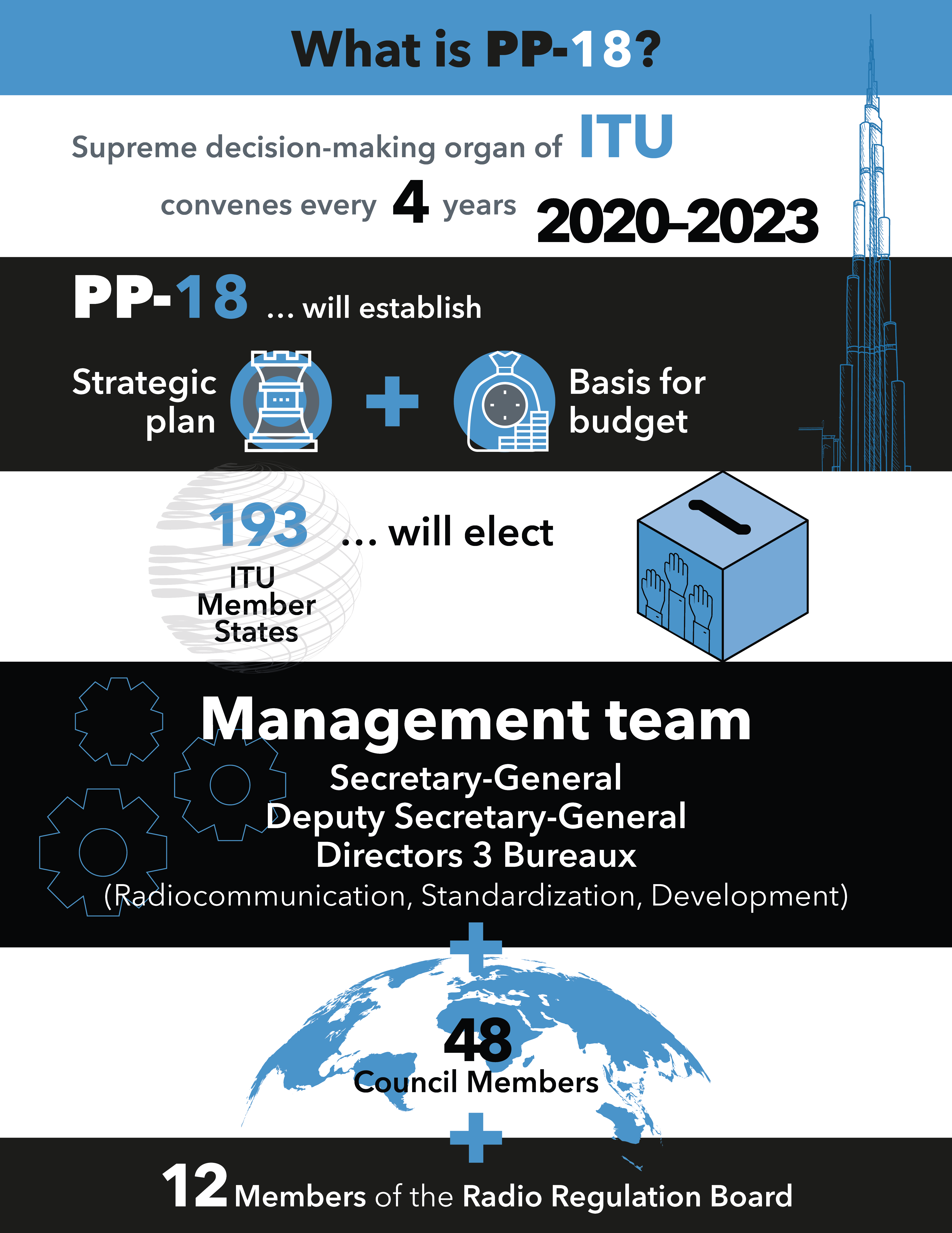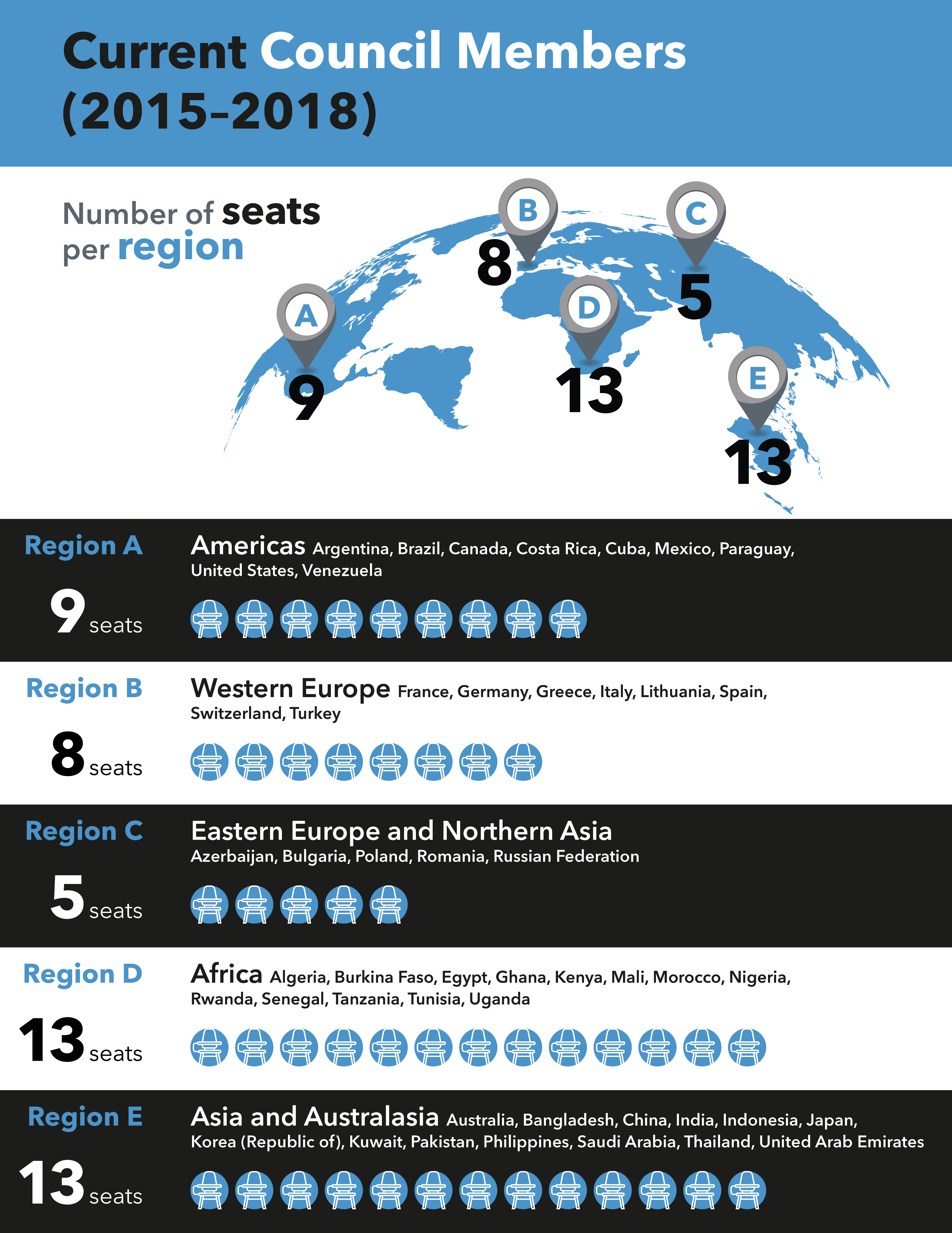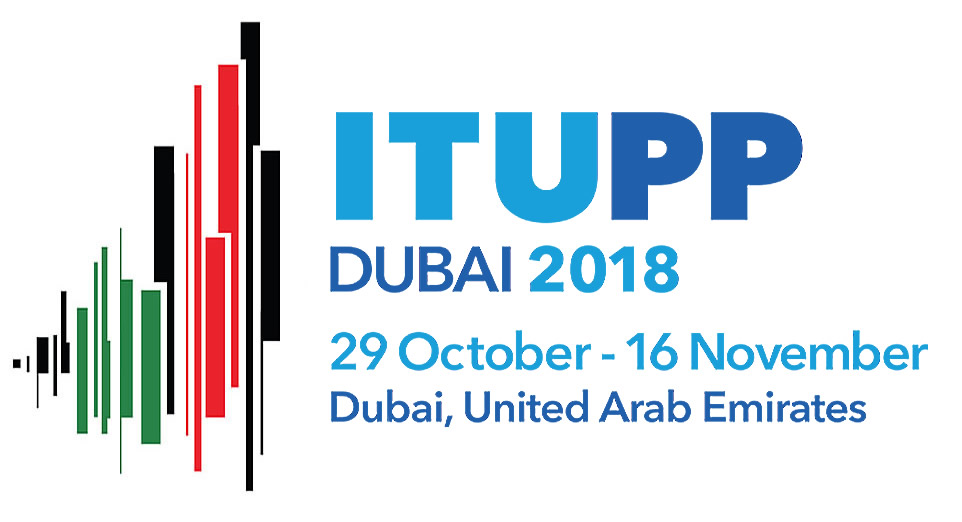The ITU Plenipotentiary Conference is the supreme decision-making organ of the International Telecommunication Union. It is ITU’s highest-level meeting, where its 193 Member States agree on the Union’s overall strategic and financial plans, leadership and direction for the next 4 years.
The Plenipotentiary Conference is an international treaty conference. It considers and, if appropriate, amends the ITU basic texts (e.g., the ITU Constitution and Convention, the General Rules of Conferences).
When they head to Dubai for the 2018 Plenipotentiary Conference (29 October – 16 November 2018), ITU Member States will set out a roadmap for 2020-2023 at a time when information and communication technologies are transforming our lives and societies.

Selecting leadership for the Union
One of ITU Member States’ tasks at PP-18 will be to elect:
- The 48 Member States amongst them that will sit on the next ITU Council, the governing body of the Union during the four-year period separating Plenipotentiary Conferences.
- The management team of the Union, including the next Secretary-General, Deputy Secretary-General and Directors of the Radiocommunication, Telecommunication Standardization and Telecommunication Development sectors.
- The 12 members of the Radio Regulation Board.
Setting the vision for the next 4 years
3.9 billion people around the world are still not connected to the Internet. PP-18 will take stock of the progress that has been made towards achieving the Connect 2020 Agenda, in line with the United Nations’ Sustainable Development Goals whose central promise is to leave no one behind.
To ensure that ITU’s response to today’s rapidly changing telecommunications environment is aligned with the Strategic and Financial Plans adopted at each Plenipotentiary Conference, delegates from the ITU Council meet once a year.
The Council takes all steps necessary to facilitate the implementation of the provisions of the ITU Constitution and Convention, the Administrative Regulations (International Telecommunications Regulations and Radio Regulations), as well as the decisions and resolutions of Plenipotentiary Conferences and other meetings of the Union.
The Council also sets up specialized Working Groups to deal with specific issues as needed. In 2001, the Council Working Group on Reform established the Council Troika. Consisting of the outgoing, sitting and incoming Chairs of the Council, the Troika ensures a smooth transition between acting Chairs.
Exercising the right to vote

Only Member States can vote, subject to their compliance with their financial contribution to the Union. These countries will be represented at PP-18 by their national delegation. If there is no restriction on the size and composition of delegations, ITU encourages Member States to have a good gender balance and a range of stakeholders from the public and private sectors and civil society.
Given ITU’s long-standing tradition of consensus building, voting is relatively rare at ITU conferences, with the exception of the election of ITU’s top management and members of the Radio Regulation Board and ITU Council at Plenipotentiary Conferences.
If a vote is called at PP-18, there will be a show of hands, a roll call vote or a secret ballot. Member States who choose to vote can vote for, against or abstain. Under certain conditions, countries may vote on behalf of another Member State (proxy vote).
Any country that does not agree with the outcome of a vote can submit a formal Reservation/Declaration on the decision when it signs the Final Acts of the Plenipotentiary Conference. Reservations and declarations can be made on any issue under discussion at the Conference.
